He might not be inked otherwise but surely has the word sanskar tattooed on his heart. When I arrive at Rajshri Productions’ office in Prabhadevi on a rather early Tuesday morning to meet Sooraj Barjatya, I am expecting a strict, perhaps even intimidating figure, given his stature and legacy. However, I am greeted by a warm, kind gentleman in his 60s, who immediately makes me feel as though we’ve known each other for years. At one point during our conversation, he casually mentions that decades ago, a certain Salman Khan had come to his office and sat in the very same spot I am occupying. I am naturally thrilled. Barjatya was barely 24 when Maine Pyar Kiya got released. My generation grew up watching his films but sometimes found ourselves questioning some of the dialogue or scenes. He agrees with my perspective, giving his opinion without a trace of arrogance. Rajshri Productions, under his leadership, recently made its OTT debut with the series Bada Naam Karenge (BNK). Here is a freewheeling conversation. Excerpts:
How would you describe BNK?
It is the story of a boy and a girl from small towns. The boy is from Ratlam, where his father runs a sweet shop. He dreams of taking his father’s franchise to Mumbai and Dubai. To pursue this, he asks his family to send him to Mumbai to complete his MBA. The girl, on the other hand, hails from Ujjain and aspires to study microbiology. Her mother is so concerned about her safety that she tells her not to take an auto-rickshaw in the evening. These two characters, who come from small-town backgrounds, struggle to fit into the big-city environment. The story unfolds as they fall in love and navigate the complexities of balancing both worlds. We brought Palash Vaswani on board to direct and he brought a fresh, young Gen-Z perspective to the project. My input was to ensure that Palash didn’t create a show that only depicted young people partying or engaging in reckless behaviour. Instead, we aimed to portray a more authentic side of Gen-Z, one where they have both good and bad days and remain connected to their families.
Today’s generation has a voice of its own.
Yes, youngsters today ask questions. When we were growing up, there was no “why.” For example, if my mother had asked me to pack my things for a relative’s wedding, I would have simply said, “Okay.” Today, if I ask my daughter to do the same, she will ask me, “Why?” I will need to provide a reason before she agrees. We need to learn to listen, not just give orders. They want to be heard.
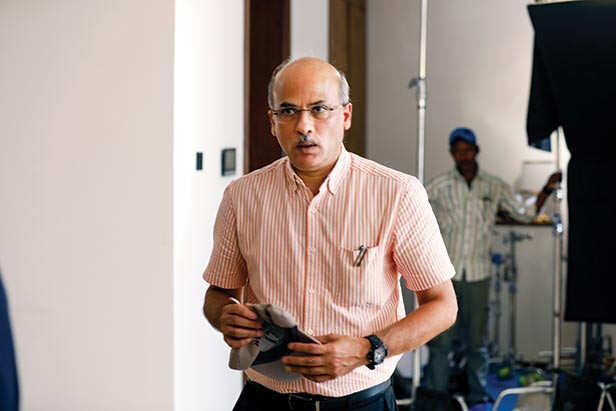
The lead character in the series shares some characteristics with your iconic character Prem.
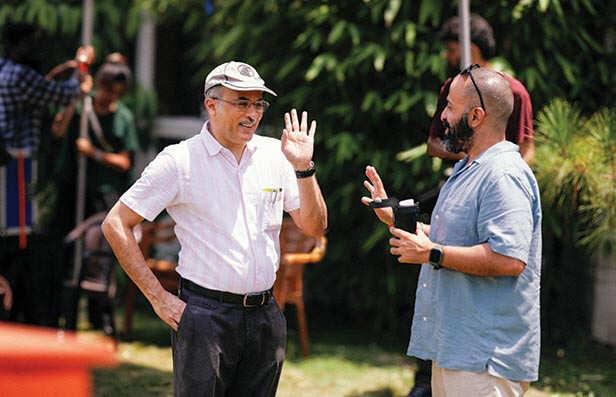
See Also: Salman Khan and Sooraj Barjatya lock script for their next film
Do you think the definition of a hero has changed, given how violent and hyper-masculine they are now?
It depends on the subject. The problem arises when we’re not sincere to the character. I made a film called Vivah, which did outstanding business in every small town. But what did my hero do? He had the courage to accept his fiancée even after she was burnt. That, too, is heroism. Heroism doesn’t only mean fighting 10-15 people.
In Vivah, Prem married the girl even after she was burnt. On the other hand, now we see heroes slapping their heroines…
This reflects the diversity within society. There are different kinds of people. Some individuals are hurt and troubled
on the inside, and films reflecting that should also be made. But films like Vivah should be made too. Cinema should offer different flavours. That’s why, when people told me that family shows wouldn’t work on OTT, I said that they should be made all the more. As you mentioned, there are films that are very violent, but there should also be films where people show respect. Otherwise, we will only continue to question life.
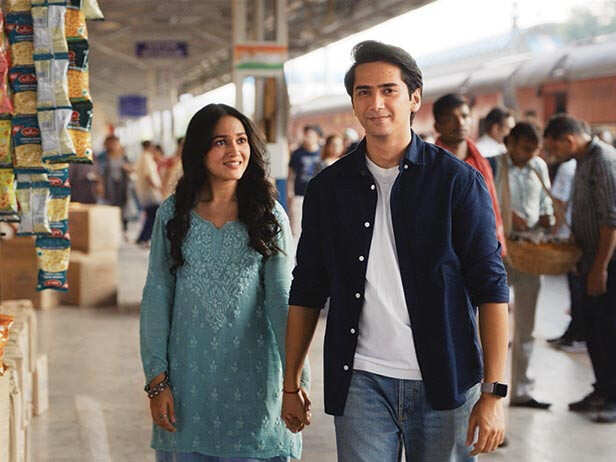
Bollywood is currently going through a dry spell at the box office. Why do you think it has become so difficult to impress the audience?
Yes, we are in a significant transition phase, but it’s just that, a phase. We’ve experienced many phases before. We have to accept that post-pandemic, people are not going to theatres as much. Even those in my circle who used to go regularly have stopped. That circuit has been broken and it will take some time to rebuild it. Going to the theatre has become expensive. Now, people can watch the latest films on their large television screens with their families at home. Post-pandemic, cinema seems to have returned to the ’80s and ’90s era. The key lies in telling stories that focus on more basic emotions like hunger, anger and pain. If I make a film analysing love, people might not
be interested. But if I show them what’s happening in their own lives, they’ll connect with it. This has been a transition we all need to accept and adapt to.
We don’t discriminate between industries anymore…
It’s a healthy change. I remember we dubbed Maine Pyar Kiya in Telugu, Tamil, and Malayalam. Hum Aapke Hain Koun..! was also dubbed, and we reached a much bigger audience. Today, dubbing has become much easier. We used to struggle with every word while dubbing back then. This is a very positive sign. And it’s only going to get better and better globally.
Don’t you think the women in your films could have had better storylines? There’s a scene in Vivah where Alok Nath is concerned about the girl’s wedding even after she is hospitalised with severe burns.
If you travel from Prabhadevi towards Ghatkopar or Kurla, you’ll see the same issues still persist. These patriarchal problems continue to exist. Today, if I were to make Vivah, I would write the dialogue differently because both I and the times have evolved. I would approach it in a new way. We’ve also grown at Rajshri. That’s why the characters in Bada Naam Karenge are different from what I portrayed earlier. In that film, the girl is even willing to lie to
her parents, something I would never have done in the past.
See Also: Here are the details regarding Salman Khan’s next, Prem Ki Shaadi, read inside
You started your career at a young age…
I began at 19 as an assistant. I was 24 when Maine Pyar Kiya was released. Back then, the value of education was different. I’ve told my sons not to feel that they need to follow the same path I did at their age. When I was a student, there was no pressure to have multiple degrees. Today, however, you can’t do that. Education is essential to survive.
How has your bond with Salman Khan evolved over time?
It’s like the bond you share with a sibling, something you can’t question. No matter how much you fight, you grow up together. We met in our early 20s. In fact, we met in the same room where we are sitting now. I was sitting where I am right now, and he was sitting almost in the same chair you’re sitting in. Even the chairs are almost identical. When we started together, we didn’t know where our careers were headed or whether the film would be a hit or a flop. Now, when we work together, it’s not about making a hit or a flop. It’s about being together, reliving those moments and playing those characters again. Over the years, the bond between Salman and me has only grown stronger. It’s never been strictly professional between us. There are so many similarities between us. We’re both the eldest children in our families, we both feel a sense of responsibility and we both lead simple lives. He doesn’t always act like a star; he’s always ready to meet anyone.
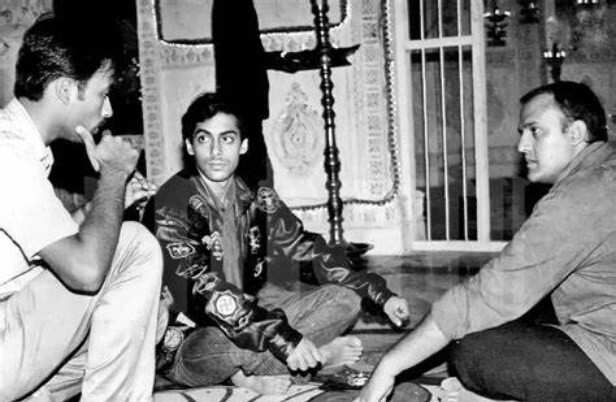
Having started at such an early age, did you two as a team go through phases of uncertainty and insecurity?
Yes, there’s no doubt about that. Everyone goes through those phases. We didn’t know whether our careers would take off or whether the film would be successful. The first version of the film I made was four hours long. And I honestly thought it wouldn’t work. After everything we’ve been through, we’ve become more grounded. We now know that nothing comes easy and everything comes with a price.
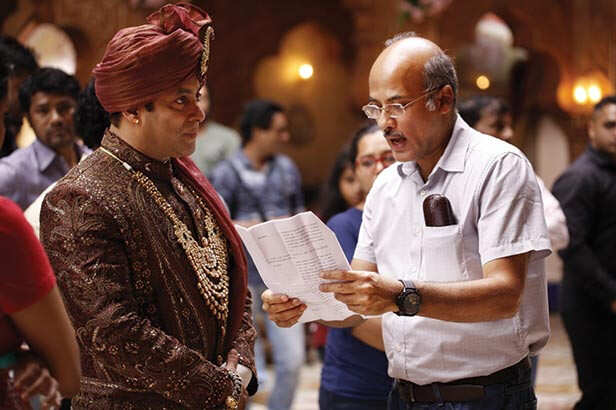
We don’t see stars like Salman Khan being made these days… The meaning of stardom has changed.
The reason is simple. Today, stars are accessible to us through our phones. I remember when we were younger, Karz had just released and I’d heard that Rishi Kapoor was going to dance to the song Om Shanti Om. I had no connection with Rishiji, and I couldn’t see him anywhere, nor could I visit the studios or talk to him. So, I was forced to go to the theatre to see him. But today, we can talk to stars and see how they look any time. We’re more connected. A star was once someone distant, someone you couldn’t reach, but now they are much more accessible. However, that doesn’t make them any less important as actors. There will still be outstanding ones but they will be known as actors, not stars.
With so many old films re-releasing, which Rajshri Productions film can we expect to see re-released in theatres?
We have just re-released Maine Pyar Kiya and Hum Aapke Hain Koun..! Now, we’re looking forward to re-releasing Hum Saath-Saath Hain.
See Also: Exclusive: Sooraj Barjatya On Salman Khan: “Our Bond Is Like Siblings, Something You Can’t Question”
